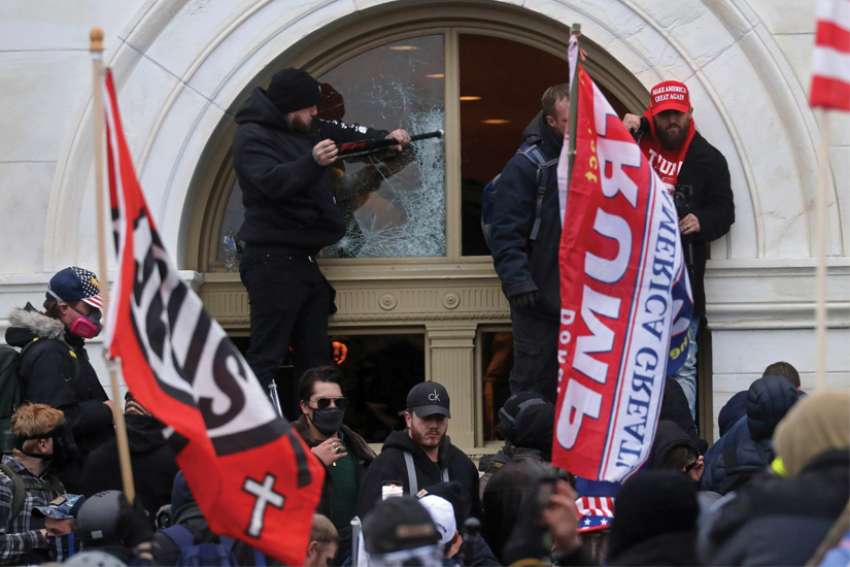Where was there a place for him, and other conservatives like him, in Conservative politics when the federal party leader was displaying the same intolerance for differing perspectives as the leader of the federal Liberal party?
My answer was short and no doubt spectacularly unhelpful: “Put not your trust in princes.”
The response was not, however much it might seem to the contrary, born of cynicism. I have always held that if patriotism is the last refuge of the scoundrel, cynicism is the concrete bunker of the lazy. It takes work to heed the line between the active discerning of the realist and the idle posturing of the cynic.
All requiring a reminder of the importance of that to politics need only cast their minds back to the Feast of Epiphany and the horror show that unfolded at the Capitol in the capital of what we used to call the free world. Former President Trump has suffered recrimination for the specific democratic abomination that erupted on Jan. 6. Rightly so.
But as I’ve been arguing since he was but a perceived longshot candidate in the primary campaign five years ago, Trump’s rise was itself a function of toxic cynicism seething through the entire American body politic. His ignominious end was not the fruit of political processes, but the slothful abandonment of the realism that politics demands. A lesson to be learned is this: If we give up on democratic politics, we get thugs, mugs and violent lunatics ransacking our institutions.
The necessity of sustaining such politics goes infinitely beyond preventing the nullity of political violence. For as Pope Emeritus Benedict XVI wrote in his first encyclical released on Christmas Day 2005, the “aim and intrinsic criterion of all politics” is justice.
“Politics is more than a mere mechanism for defining the rules of public life: Its origin and its goal are found in justice, which by its very nature has to do with ethics. The State must inevitably face the question of how justice can be achieved here and now. But this presupposes an even more radical question: What is justice?” His Holiness says in Deus Caritas Est.
In the encyclical, Benedict presents a beautifully nuanced discernment of the interdependent vitality faith and politics bring to human life lived justly. He shreds what has become the fatuously misunderstood “separation of Church and State” argument. He replaces it with the compelling counterargument that the power of reason itself demonstrates how God and man are best recognized in the complementarity of faith and politics.
Reason, properly exercised, “must undergo constant purification” to remain free of “ethical blindness” brought on by power’s bedazzling effect. Faith has the power of a purer light.
“Here politics and faith meet. Faith by its specific nature is an encounter with the living God — an encounter opening up new horizons extending beyond the sphere of reason. From God’s standpoint, faith liberates reason from its blind spots and therefore helps it to be ever more fully itself,” Benedict writes.
The objective is not to add “Church” or even “faith” as yet another species of special interest swinging the political system around by its tail. Rather, it is to keep that system alive to its first objective — justice — and to help it do so by guiding it toward the greatest human good of all, charity.
“Love — caritas — will always prove necessary, even in the most just society,” he says. “There is no ordering of the State so just that it can eliminate the need for a service of love. Whoever wants to eliminate love is preparing to eliminate man as such.”
For Catholics, for Christians, abandoning democratic politics, whether out of pique at a particular political actor’s decisions or from deeper cynicism about the entire “corrupt” political system, means abandoning charity — the very charity of the hope our faith provides us.
It is, in fact, the charity of our faith that allows us to reasonably refrain from placing all our trust in princes. We can be concerned about, take peaceful action because of, implore the leader of the federal Conservative party to, say, treat MP Derek Sloan more justly if we believe his treatment has been unjust. But the words of Psalm 146 remind us: “Happy is he that hath the God of Jacob for his help, whose hope is in the Lord his God.”
(Stockland is publisher of Convivium.ca and senior fellow with Cardus.)


